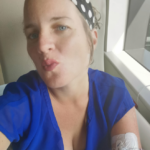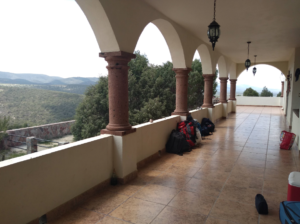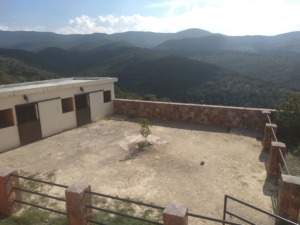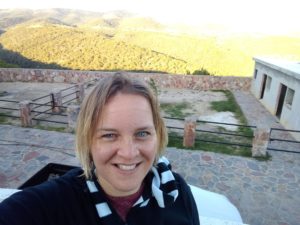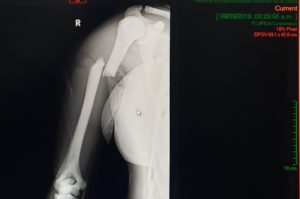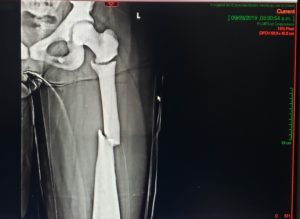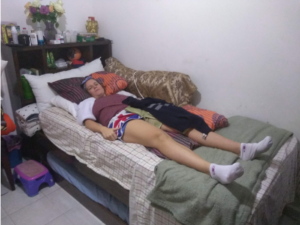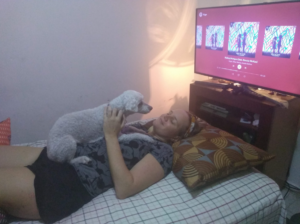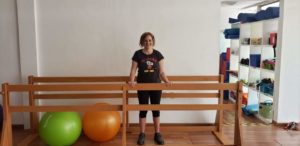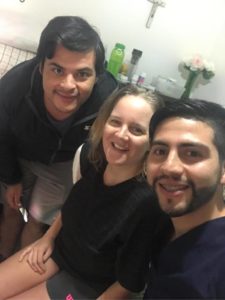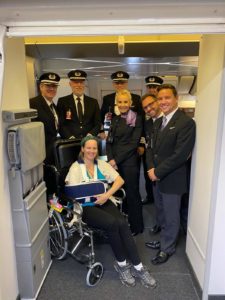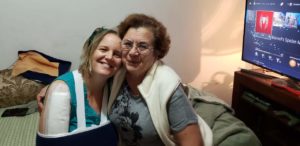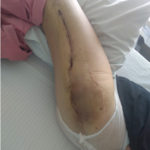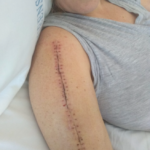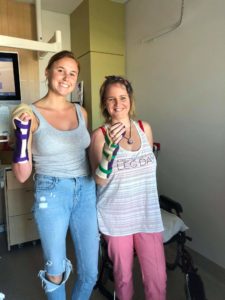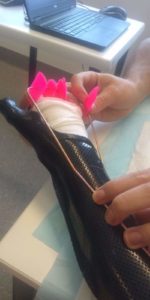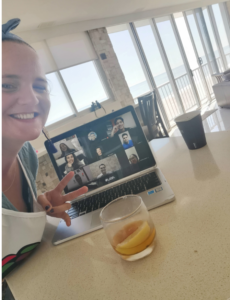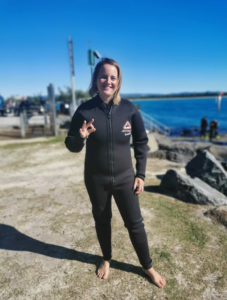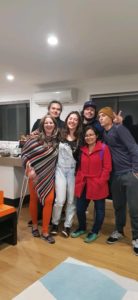365 days later: Accident in the Mexican Desert
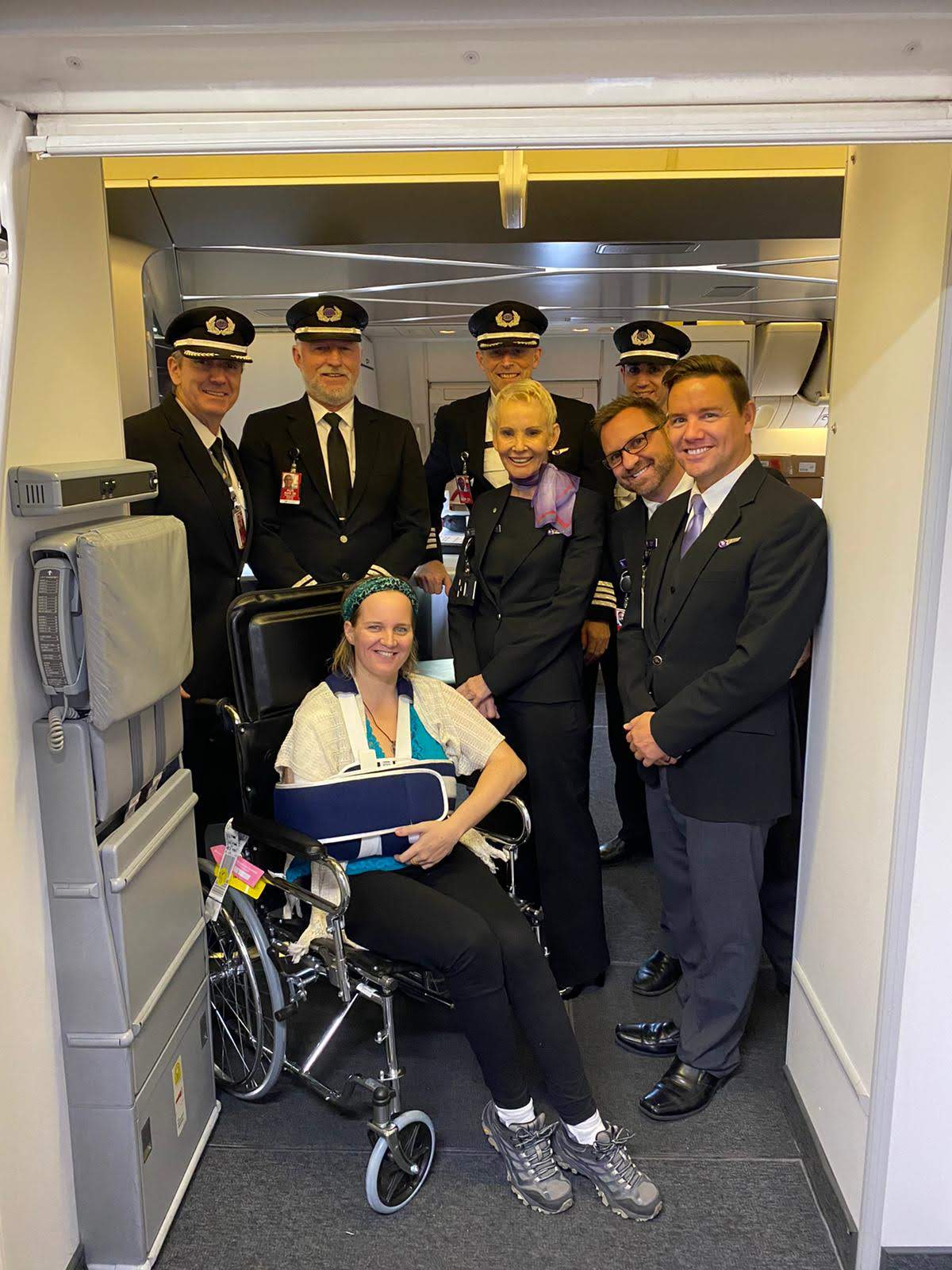
366 days ago, my life was unrecognisable. In the last article I wrote, I was a happy Australian backpacker living in Mexico telling tales about my spectacular month gallivanting around Colombia scuba diving and dancing salsa. but a year ago today, that all changed. And then suddenly, I disappeared. I believe it’s time I updated you.
I reluctantly returned to Mexico with plans to work a little more to save and eventually continue my trip south to meet all my internet pen pals that I had met years ago, back when I knew not even a word of Spanish. I couldn’t wait to hike up the mountains of Peru, drink wine in Argentina and once again see my dear Chilean friends that I had met in Australia and feel their warm embrace.
But I didn’t make it to Peru. I didn’t make it to Chile. On September 9, 2019, one year ago today, the future that I was carving out for myself became a dream of the past. I stopped writing, I stopped posting, and only those closest to me heard about what really happened that day.
Now a year later, it’s time for me to break my silence. Not only for you all, but for me. The details of that day and all the events since then have plagued my soul day and night, and I refuse to let it consume me anymore. I cannot let even one more day pass by without telling my story.
WARNING: This article is long. You’ll need a bit of time to sit down and read it.
Secondly, the content is heavy and may be distressing to some readers. But I’m sitting here writing about it, so no worries!
The Accident
September 2019: living in Mexico wasn’t in any way sunbaking on the beach with pina coladas. I was living in San Luis Potosi with my boyfriend in his office building helping him out with some things for his business when I got the call that my mother was gravely ill yet again. It was the third time I received ‘that call’, but this was the first time I was overseas, something I knew was a risk and spoke about with her before I left on my trip. The anxiety of being so far away from her and unable to do anything became too great and I needed the supportive family around me, so I made the move to my boyfriend’s mother’s house, a woman who provided me with endless support during their stay there. That weekend, my boyfriend suggested I go with his colleagues to inspect as a potential event venue out of town.
“If you want to get your mind off things and re-centre yourself,” he said, “this might be a nice weekend getaway. It’s a beautiful natural area and the guys plan on taking a walk in the mountains. I can’t go with you because I’m meeting a friend tomorrow night but this might be good for you if you’re up to it.”
The next day four of us headed an hour and a half out of San Luis Potosi city to Sierra de Alvarez and came across a beautiful former ranch converted into a BnB-style accommodation with traditional Mexican hacienda kitchen sweeping views of the mountains, balcony, and absolutely no cell phone service. We were surrounded by nothing but mountains, fresh air, and silence, pierced by the odd cry of one of several vibrantly-coloured parrots kept onsite. The owners of the property took us in like family, cooked us true Mexican meals as we sipped wine around the fire and listened to classic Mexican country music practicing our best desert Banda cries. I could feel the history and true Mexican spirit here and I was thrilled to be experiencing the real Mexico not the touristy bullshit I bore witness to as a scuba diving guide in the tourist areas of Playa del Carmen.
Stopping in at a roadside snack store on the way to the cave for our hiking trip, I filmed a bit of the town. This was the last thing I recorded.
The next day I arose excitedly with the sunrise and did yoga overlooking the mountains to prepare for our mountain walk that day. It wasn’t until 1 p.m., however, that the four of us and the owner’s son headed out of the property in his pickup truck. Two hours later heading further and further offroad into the peaks, I found myself wondering what time we said we were going to be back in the city and exactly how long this walk was going to take us. We pass a group of Boy Scouts practicing their survival skills and our guide Allan stops briefly to ask the leader for the directions to a cave called ‘El Puente de Dios’. We finally parked at a grassy clearing and piled out of the truck, following our guide. We arrived at the mouth of a huge cave….El Puente de Dios (the Bridge of God), which sat at the bottom of a rather steep rocky incline. Alan then begins his briefing, telling us the walk will take between one and five hours, depending on how far we’d like to go. He hands us all hi-vis vest and asked us if we have brought our torches.
“Torches,” I ask “What torches? No one ever said anything about torches.”
“Yes the cave be very dark and you will be crawling on your hands and knees for at least 15 minutes in single file,” said Alan.
At this point alarm bells rang in my mind and as a trained divemaster I knew the power of anxiety and its ability to turn into full-blown panic, especially in a claustrophobic situation.
“You know what Alan, I’m quite nervous about this. I don’t like the idea of crawling on my elbow after breaking it only a year ago. I think I might sit this one out,” I said.
“You’ll be fine. You’ll go directly after me in the line so I can monitor you,” he said without at all acknowledging my anxiety.
I made up my mind to at least head down the incline and perhaps sit at the mouth of the cave and wait for the others wild eight had a little adventure. I didn’t want to spoil it for the others and although the wait would be boring at least I would be safe.
We began to edge our way slowly down the incline, stepping carefully from one rock to another. Now I’ve never exactly physically been in exemplary physical shape and I am one of the most uncoordinated people that my friends know, so that tends to give me a little complex regarding how slow I can be when hiking in groups. However, to my pleasant surprise, I found I was not as last in the group. In fact, I was directly behind the guide, easily finding my footing and gliding swiftly from rock to rock leaving the others further and further behind. But my ego got the best of me again just as I was saying to myself what an awesome physical specimen I was and how amazing I was at hiking, I didn’t think carefully about lifting my feet (something my boyfriend costly told me every time I stumbled on the street). My foot caught on a rock and suddenly I was flying forward towards the rocks. In the string of microseconds that followed, I knew that my future was about to change.
I fell forward and landed with a thud against two rocks facing headfirst downhill. White-hot pain seared up my left leg and my right arm and immediately I knew with that impact on my fragile bones, there was no doubt they were broken. I screamed out in agony as the rest of the group caught up to me and my brain went into survival mode. I tried to identify for them where the fractures were and to my horror, they began to insist that I stand up.
“What are you guys talking about?” I cried. “ I have a broken arm and leg there is no way I can move.”
“You’re fine Alicia,” said Alan. “You’re in shock and it’s your fear talking. Your fear is making you think that you are worse than you really are. You simply have to get up and you’ll be fine, you’ll see.”
“No, you don’t understand,” I insisted. “ I know my body and I know what it feels like to have broken bones,” I repeated myself over and over but they just wouldn’t listen insisting that I was simply in shock and there was nothing wrong with me just because I couldn’t see contorted or exposed bones.
Alan approached me and started to move my head around.
“ don’t you know the first thing about first aid?” I asked. “ you don’t move my head in case I have a neck injury you could kill me!”
He moved down to my leg and reached for it.
“I am dangerously close to your balls right now if you even think about touching me I will reach out with my only unbroken arm and hit you so hard you’ll turn into a woman!” Having managed the entire conversation thus far in Spanish, this was the only sentence I screamed out in English, but he seemed to comprehend the tone of the message and backed away.
“Why is everyone just standing around and no-one has called for help yet?” I asked. “ Is it there a rescue team or helicopter or something?”
At this point, Alan just laughed. “You’re not in Australia anymore, Alicia,” said Alan. “Your only hope to get out of here is if you stand up and walk out. If you don’t, you’ll die here.”
“You at least need to get yourself out of this position, Alicia,” said my colleague Michelle. “You’re upside down and you will not last very long like that.”
It was then that I had to push myself up on my unbroken left arm and slowly slide down the rocky embankment until I reached the bottom where I could roll over and sit up. The pain was so great I almost vomited.
“Okay,” said Alan, approaching my leg and starting to massage it. “your muscles have atrophied from lack of movement so I will get the knots out, and then you will need to stand up so we can walk you out of here.”
I then felt a crunching sensation in my leg as Alan insisted that was simply a knot releasing from my muscle. At this point, I had completely lost all feeling in my right as it turned to jelly.
“You need to give me time,” I insisted.
“Sure, no problem,” said Alan. “But it will start to get dark in about 45 minutes and trust me, you do not want to be here when it gets dark.”
Suddenly from the mouth of the cave behind me, I felt a presence. An energy. A green, feminine energy. Now anyone who knows me knows that I am not one to believe in spirits, energies, God. I’ve been an atheist since I was 21 years old. But at that moment I knew that there was someone looking out for me. Someone trying to send me a message. she said:
“You’ll have to get up Alicia. you have to be strong and get back to the city for your mum. you cannot die here. You need to be strong for your mum. She needs you.”
Believe me, if it hadn’t happened to me, I’d be reading this shaking my head in cynical disbelief too, but perhaps the only reason I never believed was that I’d never been in a situation where death was reaching out to me and I had a choice.
“Okay, Mum,” I said aloud. And slowly I stood up.
I sat on a nearby boulder and tried to test my weight on my leg. It had turned to jelly as well. After 45 minutes trying to put my weight on it, convincing the three men of the group that there was no way they would manage to carry me out of there, hiking back up the embankment with my hoisted over their shoulders, it dawned on me.
“The Scouts!” I shouted. “The Scouts will know what to do! They’ll have radios or first aid equipment.
I sent Alan and my boyfriend’s associate, Pedro, off to fetch help while two people remained with me.
Of course, we didn’t have water, we didn’t have jackets, we didn’t have any supplies. I hadn’t even thought to ask about these things because I was on my day off trying to forget about my dramas at home. My rescue diver instincts kicked in too late and I hadn’t checked to see if we were well prepared. A lesson hard learned.
The sky got darker in the air got colder. We could hear the howls of mountain animals in the distance and the last remaining man in the group started to panic.
“ I can’t believe this is happening,” he said. “There’s evil energy here, a witch, or something, I can feel it. When I woke up this morning I never thought that I would die today.”
Real helpful, buddy. Thanks. Real supportive.
“Just leave me here,” I said. “I don’t want you to die because of me. I’m done for, anyway.”
“We’re most certainly not going to leave you here,” said Catherine, my female colleague and only useful member of our group. She came to sit next to me and as we waited and my body temperature dropped lower and lower she told me stories of her horrendously difficult life and how she managed to get through it all to distract me and make me realise that women can withstand a bucketload of shit in life and still make it through.
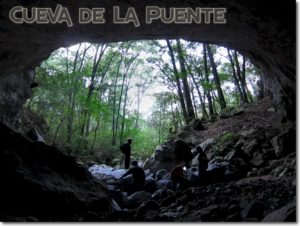
The Rescue
Four hours later, we saw torch lights at the top of the embankment. Suddenly, my male companion calmed down as Alan and Pedro returned, telling us a rescue team made up of about 10 volunteers from the local lime mine and town surrounds were on their way but would take another hour and a half to arrive with all their rescue supplies. By the time they worked their way slowly down the rocks in the dark to where I was, I was shivering, weak, and barely conscious.
The men got to work efficiently in a surprisingly-ordered manner for a group of volunteers from the Mexican countryside. I was lowered again to the ground as my leg and arm were immobilised in inflatable splints. They lifted me onto a plastic board and wrapped me in aluminum blankets to prevent hypothermia from setting in. They hoisted me up and started the precarious hike back up the rocky slope, with nothing but the lights of their headlamps to guide their way. One kept me distracted with conversation as I heard the leader barking orders to his team, “Step here…step there….watch out for that tree trunk…that stone is unstable…”
The rescue team reached the top of the embankment and slid me into the back of a pickup truck. Several of them jumped in and sat on the sides of the tray to monitor me as we began the offroad journey towards the ambulance, which could not enter the unstable terrain. They kept me distracted chatting as I tried to make light of the situation and joked, not knowing just how serious my condition was. They transferred me to an ambulance that would take me to the nearby lime mine and then on to the city. This ride turned out to be the longest and most painful journies of my life. One of the rescue volunteers sat in the ambulance with Pedro and I, saying ‘five more minutes. just five more minutes’ at every interval. This was one big cultural difference that I noticed between Mexico and Australia: directness is not their strong point. After about an hour of being told, ‘soon, not long now, just five more minutes’, I eventually got pissed off and yelled out in frustration.
“Can you please just tell me the truth? If it’s an hour and a half away I can handle it when I don’t like is lies. I need to know how long I have to hold on for.”
Then, there was an enormous crash and the ambulance jolted to a sudden stop as my arm swung out to the side despite its immobilisation. I could have screamed, I could have cried, but I stayed silent as I waited for the paramedics to exit the vehicle and see what happened. In the midnight darkness with no moon in the middle of the Mexican sierra, the ambulance had run over a fallen tree trunk, which had become entangled with the axle. the rescue team set to work the trunk free from the vehicle as I lay there silent, almost laughing to myself at the ridiculousness of it all, surprising myself at my tranquility on inside my arm was screaming.
After cutting us free, we arrived at the mine and the rescue team said their goodbyes, thanking me for my bravery and congratulating me on my Spanish skills. They didn’t demand one dollar of my money. I have never been more grateful to anyone for saving my life. America is waiting for us at the moment. she checked my Vital Signs internal bleeding, placed a painkiller under my tongue and injected me with something that did absolutely nothing to ease my suffering.
We got going again and finally back on the road…if you could call it that. If there is one thing I will always appreciate about Australia, it’s the smooth easy roads – especially on the way to the hospital with broken limbs. no one but my boyfriend’s associate Pedro company in the back of the ambulance, I screamed for the next hour and a half with every twist and turn through the mountains on the country road riddled with stones and potholes. I’d never been in so much pain in my whole life, surprisingly more from my arm than my leg. Later when seeing the x-rays, it became very obvious why. Later when seeing the x-rays, it became very obvious why. Pedro stayed silent, too stunned to provide me with any words of support or comfort, and only opened his mouth to yell at me to stop screaming.
The Hospital
My boyfriend David was waiting at the hospital when we pulled up at about 4am. Pedro had called him from the ambulance as soon as we’d regained cellphone signal. I had been smart about my choice of the hospital this time. I told the paramedics to take me to a private hospital near our house, one I knew where David could easily get to and negotiate with to work with my insurance company.
I was brought in, x-rayed, and admitted and the orthopedic surgeon came to talk to me.
“Alicia,” he said to me in a calm voice. “You have broken your femur in two places and your humerus quite badly. We need to operate on you urgently. Please sign the consent forms and we will operate on you at 11am.”
The hospital administrator comes into my room and tells me that the hospital doesn’t, in fact, work with overseas insurance agencies.
“That’s ok,” I said, “My agency has a backup plan in case of this. Here is a list of third parties, do you work with one of them?”
“Yes,” they said.
But the only thing on my mind was my Mum. I mustered the remaining energy I had left to call my brother and sister to check on her. She was still with us. She wasn’t awake, but she was hanging on. So my Mum still alive, and I was safe in the hospital in good hands. It’s all up from here, right?
Wrong.
An hour before the proposed surgery, I heard word that the hospital didn’t, in fact, want to accept payment from any third parties, and didn’t even have the technological capacity to accept a credit card number over the phone. They needed a plastic tangible card to swipe, or cash. They would not wait to accept an international bank transfer, and wouldn’t operate on me until they received the money.
Only an hour before surgery, I was being refused treatment. This is where I lost my shit.
“You have admitted me into this hospital under the promise to take care of me, I am a foreigner in your country, if you refuse to treat me now because of your administration policies, you have no idea the trouble you’ll be in for.”
I went to surgery on time.
My eyes opened upon hearing the voice of the orthopedic surgeon. He was taking the fentanyl mask off my face and wheeling me out of the operating theatre.
“Alicia, we couldn’t complete the operation. You have a strange bone condition and I don’t know how to operate on it. I need to order different tools and operate on you again tomorrow. In the meantime we are taking you to intensive care, you have lost a lot of blood.”
Nice thing to hear as soon as your eyes open. Orthopedic surgeons have never been known for their tact.
I was wheeled into ICU, where nurses and doctors spent the next two hours trying and failing to locate viable veins in my arms to put an IV line. Eventually, they called in an anesthetic doctor, who covered my head with a sheet, punctured my chest with a local anesthetic, and stuck a line directly into my shoulder through to my heart, telling me this was the last resort because there’s a chance this procedure could puncture my lung. As I lay under that sheet, hearing the whirs of the ICU machines and the bleeping of my own heartbeat, I couldn’t believe this was happening to me. I mean, this had to be all just one bad dream, and I’d wake up tomorrow, either in my bed next to David, or even back in Australia, right?
The procedure was successful, and I was rolled back into surgery, where the doctors had changed tact: putting outdated technology plates on the outside of my bones, which were too solid to insert any titanium rods.
I remember hearing David’s mum’s voice and her reaching for my hand as I slept through the night. When I woke up, David was beside me.
“How’s Mum?” I asked.
No response.
“David, how’s Mum?”
Nothing.
“David, answer the question, is my Mum dead or alive?”
He looked painfully at me and said, “She’s dead.”
“When?”
“Two days ago.”
“Leave me,” I said.
He didn’t move. He just looked at me with tears in his eyes.
“I’m sorry, they told me not to tell you or you wouldn’t have made it through surgery. “
“Leave me!!” I cried. I knew I was hurting him, but I was too overcome by grief to act any other way.
I wailed and cried and thrashed in bed until the nurses came to sedate me.
The next three days were a blur. I was heavily sedated and was only aware of nurses changing shifts and seeing food trays come and go. But I will never forget what I felt inside.
Why couldn’t they have just left me at the mouth of that cave? Why did I have to live? There was nothing left to live for. I’d have to go back to Australia. My trip was over, my relationship was over. My future was gone. I closed my eyes hoping I’d never open them again. But I did. I had no choice but to wake up every day and keep breathing.
Eventually, I was stable enough to move to a ward, where I remained for another week. I ran a fever for days and the nurse had the airconditioning down to 16 degrees, my visitors needed a coat just to sit in with me. Morphine was not an option in Mexico, so tramadol and paracetamol was the only pain relief I had. I’d broken my leg on the left and my arm on the right, so it was impossible to lie on my side. I was flat on my back without moving for weeks. I didn’t sleep. Every time I closed my eyes I saw the rocks below hurtle towards me as I fell forward, or I tasted the bitter tramadol in my mouth as I gagged and vomited. My red blood cells were critically low – I had lost a lot of blood during the surgery – and I needed four blood transfusions and the city didn’t have a blood bank, so I had to wait for people to donate.
David and his family took shifts monitoring me. His mother came in every day, insisting he go home to get some rest, and she took over, showering me and dressing me. She cleaned parts of my body even my own boyfriend only got to on special occasions. Highlight of my life.
Another difference between our hospitals here and there they have a sofa bed for guests to stay and sleep next to the patient. Mind you, I’m referring to private hospitals there. In a public hospital, you’re lucky to even get treated. More on that here.
Every morning at 11am, the hospital administrator would show up at my bedside, even when I was in ICU, with a copy of that day’s bill in her hand, reminding us they do not accept payment through any other means but cash. David had to ask every friend and member of his family to help us out whilst we waited for the insurance company to transfer us the money. It’s one thing to deal with trauma and the death of a loved one, but to know you might be pushed out onto the street at any moment because a hospital’s system is too antiquated to accept a digital credit card, it a kick whilst I was down. In a way, I think it was less stressful for me than for David, as I was in an induced coma for half the time. He aged about 10 years in 2 weeks.
My mother’s funeral was held whilst I was still in the hospital. I didn’t get to see it and I didn’t even get the chance to write anything to be said on the day. Every time I tried to talk about her or started to cry, I was told to be strong, that now wasn’t the moment, that I needed to focus on my own health first.
The First 8 weeks
My insurance company wanted to fly me home, but a commercial flight, even a business class recliner, requires passengers to sit for at least 90 minutes for takeoff and landing, so I needed to be able to bend my leg and sit comfortably for at least a few hours before I’d be fit to fly home.
I was discharged to David’s Mum’s house. She kicked her estranged husband out of his room on the ground floor to accommodate me, and for the next weeks she waited on me hand and foot and I wasted no time calling a physiotherapist to do at-home sessions three times a week to restore movement to my arm and leg to get me flight-ready. The room was devoid of windows and I spent the next seven weeks in bed with no natural light, having my food brought to me and being showered only twice a week when I could stand the pain of moving. David was a constant support to me, helping me three times a day with physio exercise, and I had restored 100% range of movement to my arm within only two weeks, but my leg was far more complicated.
It was during these weeks that I had to start thinking about what future I had waiting for me. My mother was dead, my sister’s house had stairs, my brother didn’t even call to see how I was, and my grandmother was in a 1 bedroom apartment in a senior’s facility. My future was bleak, and I cried day in and day out, with only David and his mother to see my tears. Their adorable poodle, 15-year-old Pelusa, didn’t leave my side, following me to the bathroom, kitchen and she even stood up as I did to get dressed each day. It was a nightly battle for David’s mum to get her to go upstairs to bed and when she wasn’t looking, Pelusa would sneak back downstairs and bury herself in the covers at my feet.
I didn’t want to come back to somewhere I had so little support, so I decided that the best move for me was to stay in Mexico until I was physically capable of climbing stairs and working again.
Eight weeks after the surgery, I went in for x-rays and the orthopedic surgeon gave me the good news. He was a little worried about the angle the hip was growing, but he was satisfied enough to let me start weight-bearing – just 30-40% to begin with, on a walker. I, too, was worried, looking at the way the hip was healing, but after seeking a second opinion from my physiotherapist, I decided to trust the guys with medical degrees.
Another break
And so, my recuperation stepped up a notch. I changed my in-home physio sessions to clinic sessions. I took my first steps on the parallel bars and rewarded us with pizza to celebrate.
Until five days later as I walked to the bathroom. I was in my slipper Ugg boots shuffling on the walker from the kitchen to the bathroom, and I insisted I didn’t need accompaniment – independent to a fault as always. Then suddenly I stumbled and lurched forward, bumping my arm against the bar of the walking frame. I regained my footing and stood up, and my arm swung out of place, making my stomach churn.
“David!” I yelled, trying to maintain my composure. “Don’t worry, I’m fine, but can you please come here? I’ve broken my arm again.”
I will not repeat the string of expletives that escaped his lips at this point.
Well, that’s it, you’re going back to Australia,” he said, throwing his hands up in the air in exasperation.
I took control of the situation to prevent panic from setting in. Holding my arm to prevent it from detaching further, I sat down on the walker and started giving instructions; David to call my insurance, his sister to call an ambulance, and I called my sister. Back to the hospital, we went. Back through the whole rigmarole with the insurance and borrowing money from friends and family in Mexico. The arm indeed had broken again, just where the final screw on the plate was located, possibly having weakened the bone where it had been drilled in. So did the arm break from the weight I was bearing through my arms on the walking frame? Or did I stumble and hit my arm on the bar, causing it to break? We will never know.
Another week in the hospital, I insisted on continuing the physiotherapy exercises on my leg even from my hospital bed, aware that muscles begin to atrophy after only 24 hours without movement. However, my arm did not come out of surgery in the tip-top condition it was in after 6 weeks of physio. I had lost all sensation in my forearm from my fingers to my elbow, and my hand and wrist were completely paralysed. Radial palsy, the doctor said. He had to move my radial nerve when placing the longer plate onto my humerus bone, and nerves go to sleep when they are touched. It should be recovered within a month, he said.
He was wrong.
Four days later, whether I liked it or not, my insurance company sent a nurse to repatriate me back to Australia.
David’s Mum packed my things into a suitcase David gave me, swapping it for the beautiful hardy backpack I had bought in Australia and knew would never have use for again. I prepared a speech and said a teary goodbye to his family: Mum, Dad, sisters, brother-in-law and their kids. Nurse Julia arrived from Canada to pick me up at David’s doorstep and take me on three flights back to the Gold Coast. I could have chosen Melbourne, a city I loved, but what did I really have there? A few friends? I’d left my house, my job, sold my things, I really had nothing there anymore. What I needed was my family and some warm weather to heal my body and soul.
The fights back home weren’t as horrific as one might have thought. With the hilarious Julia to throw Dad jokes my way, and the permission to drink on-flight champagne, I was well comfortable by the time we boarded the 15-hour flight from LA to Sydney. So when the businessman in the capsule in front passed me a bag of ‘gummy bears’, saying they’d help to ‘relax me’, I was not going to turn him down.
I spent the rest of the flight, high as a kite watching movies and sleeping better than I had in months. I left that flight best buddies with the whole crew. Too bad I had to go through so much to experience business class, but guys you have to do it at least once in your life.
Back in Australia
Straight from the airport to the hospital, Julia said farewell and left me in the hands of the orthopedic team at the hospital on the Gold Coast. They took their own x-rays and the poor intern who was charged with taking care of ER that day had the job of telling me the bad news.
“I’m afraid that your hip has healed at a bad angle and we need to revise it.”
“You mean, rebreak it and do it all over again?”
“Yes.”
They assigned the hospital’s best ortho to my case, or at least he seemed to be by the way everyone idolised him when they spoke about him. I came to know him as ‘The Rockstar’ – the one who would only turn up at the last minute to play the main event (the surgery) after all his underlings had played the opening acts.
I was placed in a ward for 11 days without permission to move whilst the team consulted with everyone they could find that knew something about my bone condition.
They ordered a million dollars worth of diamond drill bits to properly perforate my bones, painstakingly slowly, to insert a titanium rod inside. Upon waking up and receiving the surgery debriefing, I found out that to avoid shattering the bone completely, they could only manage to drill a canal the size to fit a pediatric sized-rod, meaning I wouldn’t be able to weight-bear until the bone had healed.
So the next question was: where would I stay whilst I healed? My sister’s place was still not an option as I was unable to climb stairs. Don’t worry, the hospital staff told me, the social worker will sort something out. I wouldn’t be turfed out onto the street in Australia. She came and handed me a brochure with names of homeless crisis hostels in Brisbane more than 70km away, aged-care facilities for which I was not eligible, or supported disabled accommodation that was only affordable to those receiving a disability pension.
She then suggested my only option was flatmates.com to go live with a stranger. It was at that point I asked my surgeon to keep me in the hospital or I’d be at risk of falling and undoing all his work.
I stayed in the hospital for 10 weeks. Christmas, New Year, and Australia Day. I became institutionalised. I got to know the nurses, went downstairs in my wheelchair to read in the sun in the afternoons, and started practicing writing with my left hand. I started learning Portuguese, hoping I could increase the connection I had to South America and make Brazilian friends on the Gold Coast.
A small blister on my scar turned into a huge bubble and I went back to surgery to get it cut out and receive yet more blood transfusions before being released the next week on oral antibiotics.
A brief summary of what’s happened since then
Mid-Feb:
Left hospital to stay with a friend. During this time I really pushed into my hand therapy, using a splint to encourage my fingers to move every time I lifted my wrist. Apparently, it would take a week for every mm of the nerve that was damaged, so I had about 5-6 months to wait after the surgery in November.
March:
Found a room in a share house, but the day I moved in, returned to the hospital 3 weeks later after the skin infection had returned. Another operation, another 2 weeks in hospital whilst they figured out what on earth was growing in my leg and how to treat it. Anaphylactic reaction to the IV antibiotics they gave me, turned all red and itchy – I wanted to scratch my face off. Got dunked in a cold shower and had an antihistamine shoved down my throat.
Lost room in share house due to Coronavirus. Was released onto the street and had to find an Airbnb. Turned up to the Airbnb and the owner wouldn’t let in a patient who’d just gotten out of the hospital. Wouldn’t even come to the door. With the help of a lovely girl seeing me struggling to walk on my crutches with my hospital bag, I found another place.
- My bed buddy for a week, Lisa, – also with an infection in the bone from a dog bite.
- The dynamic splint made for me by my hand therapist, which caused my wrist to move up as I clenched my fingers.
Mid-March:
Moved into another shared room just in time for three months of quarantine! Despite the fact that I shared with people who held parties and strangers visiting throughout the whole time, and not once helped me even to carry a coffee to my room, I thoroughly enjoyed this time. I was alone for the first time in months. I sat out on the balcony enjoying the sun every day, I watched the sunrise every morning, and I wrote a list of things to achieve every day so I didn’t become stagnant or (too) depressed. I also became pretty damn fluent in Portuguese in those 3 months. So if anyone asks me how I got so good in such a short time, now you know why. Also, the hand therapist was right: it took 5 months to get full movement and sensation back into my hand. I could finally graduate to normal crutches.
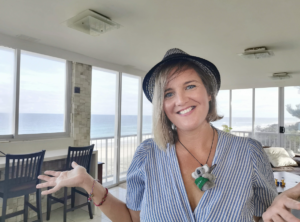
June:
Six-monthly x-rays – another blow delivered – my orthopod waltzed in like it was a routine dentist checkup and announced that my femur hadn’t started healing. I needed the 7mm rod taken out and a 10mm one put in. Surgery scheduled for my birthday. I delayed it to a week later and went scuba diving and got wildly drunk while I still had the chance. Released from the hospital less than 48 hours after the surgery, despite my desperate cries to the staff that I had no support at the house. I received the reply, “Your accommodation issues are your own to resolve” “the social worker couldn’t help you before, so don’t worry about referring her”, and my personal favourite: “This isn’t a hotel”.
I spent the next two weeks in my room not bathing or moving, eating sandwiches that my friend came to leave at my bed every few days.
August:
Without even a word of goodbye as I moved out, I made a happy transition to a house with two Brazilians hoping to practice my Portuguese and stabilise my life a little. I started to teach English from home, hired an intern, and started planning content for my YouTube and Instagram channels.
A 6-week checkup at the ortho clinic showed the bone was healing well, and the doctors patted themselves on the shoulder at their extraordinary work. I expressed concern at the pain and hard mass on my leg near the scar. It was nothing, they said. I got second and third opinions later that week from physiotherapists, once claiming it was the scar stuck to the tissue, and the other a hematoma, both insisting I just needed to massage the lump into submission….until a bubble appeared just like the first one. I calmly packed not one, but two bags for the hospital. The second just in case it was a long stay. I decided to enjoy my weekend, heading out to dinner and dancing on the beach that Sunday night, knowing the orthopedist wouldn’t be there on weekends anyway.
Monday morning I quietly snuck out of the house early and checked myself into ER. Waiting for my test results, I receive a message from my housemates, saying they’d changed their minds about living with me and they’d prefer to live with another Brazilian friend. I was alone, in hospital, homeless yet again.
Doctors operated again the following afternoon and I stayed in the hospital for the next 10 days, discovering that the bacteria had become resistant to the antibiotics and has completely colonised my bone and the metalwork. My blood levels were critically low again and I needed three more transfusions. They want to remove the metal rod so the bacteria don’t eat away any more of my femur but they cannot yet because my bone heals so slowly. They sent me to surgery again later that week to insert a peripheral intravenous central line into my arm through to my heart (essentially it’s a permanent IV drip that you go home with for long-term IV treatment). Nurses now need to come every day to change the drip – which I carry around with me 24/7 in a bum-bag – and check my vitals to make sure this antibiotic that I’m sort of allergic to isn’t sending me into anaphylactic shock. I found another room online in desperation, being told yet again by the social worker that I know more options of accommodation than they do, and I either find something or sleep on the streets. I was released several days ago and I just trying to find my footing in this new place with new housemates, hoping to God or Krishna or Buddha or whoever is listening that this time it works out.
So….yeah….
I think that’s me up to date. 14 pages. Seriously, 14 pages?! No wonder I procrastinated writing about this for so long. Thank God I found voice-to-text when my hand was paralysed, although nothing will ever beat the sound of these keys clattering. God, how I’ve missed this.
So, for those of you who are still with m and haven’t nodded off to sleep, pressed the little X in the top corner, or jumped off your balcony at the horror of this whole story, I salute you. I guess there must be one thing on your mind.
How am I now?
Well, I’ll tell you the truth. Not the positive, happy, inspirational shit that people come up with in their autobiographies. But also not the depressive, victim-playing ‘please feel sorry for me, I have the worst life in the world, no-one loves me’ spiel, either.
The truth is that some days I’m ok, and some days I’m not ok.
My future was ripped away. My career as a travel blogger, international diving instructor, or English teacher is gone, I can never travel again, there is no insurance that covers this rare bone condition. My relationship was ripped away. David had to stay in Mexico with his business and family, especially during these times. My health continues to serve me problems, and now I’m facing the possibility that my health will deteriorate just like Mum’s did, but unlike her, I don’t have kids, a mother, a husband, to take care of me.
I feel like the weight of my memories is too much for anyone else to bear. When I tell people what’s going on with me, I’ve noticed they get uncomfortable and don’t know what to say. Or they try to fill the silence with well-intentioned, but cliched phrases like “stay strong, be positive, it’ll be alright, everything will work out.”
Or I feel guilty for grieving so much, even a year later, knowing that the whole world is going through a crisis right now, and I feel selfish for still crying about what happened to me and wanting people to listen when they have probably grown tired of listening to me by now.
So I pull back from contact. I disappear. My messages turn into two-word answers.
But then I can only wallow in my self-pity for so long, before I sit up in bed and ask myself, “Alicia, what the hell are you doing? Get up, make a coffee, sit out in the sun, listen to a TED talk and go out and seize the day!
“What would Mum do?”
Well, she’d wallow in self-pity for a while too, wondering where her friends and support is. God how I wish she were here throughout this time, she is the only person who really could understand what I went through. It’s only now that I realise just how similar we are and exactly how much of a compliment that was.
How strong she was! To be so so ill and STILL travel to the US and Canada, to STILL work at the Commonwealth Games, only weeks after she escaped death from Influenza.
What would she do? She’d ask herself what she could do that day to make herself smile, who she could connect with, how she could make a difference in someone’s life.
So here I am 365 days later, about to head up to Mount Tamborine, a sacred place for our family where we go to scatter our ashes. I never got to say anything to my mother that day, but I will today.
I’m on the journey to healing. It’s two steps forward, one step back, but with less support here, the stronger I become internally and now I laugh in the face of pandemics and smile at every nurse and public servant I see, grateful to live in this country.
So, maybe I’m not going to have the most extreme Instagram-friendly life that I’d dreamt of, and I’m still coming to terms with that. Perhaps I’ll continue with my channel. Perhaps I’ll reschedule all my English students and get back on track. Perhaps I’ll finally do that English teaching course at TAFE and get back to work. But I’m hoping that one day I can dance, dive and hike again. Yes, I am depressed. Yes, I am down, and yes, I am getting help to process all of this, but let me feel it, and just be there for me.
“The human soul doesn’t want to be advised or fixed or saved. It simply wants to be witnessed — to be seen, heard and companioned exactly as it is.”
– Parker Palmer
What you can do is to share this story with anyone who has gone through something difficult in their life. Show them that you can get up every day and do just a little more. Sometimes we don’t have the strength, so we don’t have to. Other days, it’s time to stop making ourselves into the victim, pull up our socks, and get busy living, or we’ll waste the precious remaining weeks we have left. And if there’s one thing I’ve learnt from all of this, is that if I haven’t died yet, then it’s just not my time.
Thank you for listening.
Please follow me on my YouTube Channel, Wonders with Alicia, where I’ll be creating content about language learning, and my Instagram, Alicia the Aussie Teacher, where I’ll keep you updated with details of my life in Australia and my health journey.
